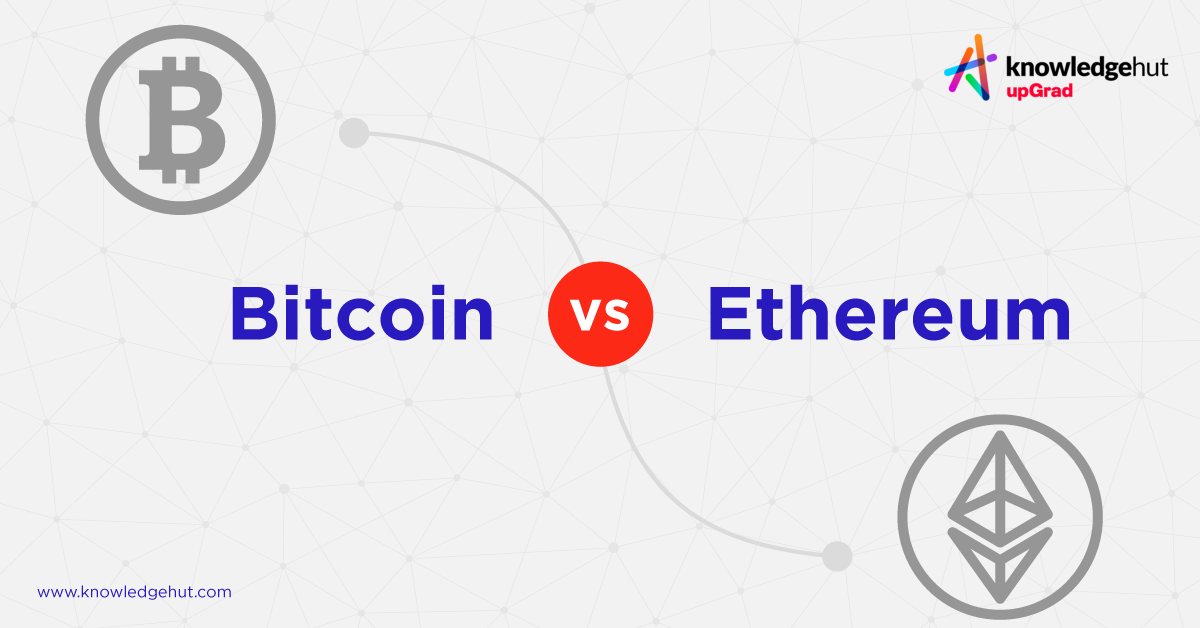Between Ethereum And Bitcoin Which One Is Profitable
As between ethereum and bitcoin which one is profitable takes center stage, this opening passage beckons readers into a world crafted with good knowledge, ensuring a reading experience that is both absorbing and distinctly original.
The ongoing debate surrounding Ethereum and Bitcoin's profitability is a hot topic among investors and enthusiasts alike. Each cryptocurrency offers unique advantages and challenges, making it essential to explore their fundamental differences, historical contexts, and various use cases. By understanding these aspects, one can better navigate the complex landscapes of these digital currencies.
Overview of Ethereum and Bitcoin

Ethereum and Bitcoin are the two giants of the cryptocurrency world, each with unique features and purposes. Bitcoin, created in 2009 by an anonymous figure known as Satoshi Nakamoto, primarily serves as a digital currency for transactions and store of value. In contrast, Ethereum, launched in 2015 by Vitalik Buterin and others, is more than just a cryptocurrency; it is a decentralized platform that enables developers to build and deploy smart contracts and decentralized applications (dApps).The fundamental differences between them lie in their design and purpose.
Bitcoin’s primary goal is to provide a peer-to-peer currency system, while Ethereum aims to facilitate programmable transactions through its smart contract functionality. This distinction drives the primary use cases for each; Bitcoin is often viewed as “digital gold,” while Ethereum is seen as a platform for innovation in decentralized finance (DeFi) and other blockchain-based applications.
Profitability Factors
Profitability in both Ethereum and Bitcoin is influenced by several critical factors. Market trends play a significant role, as price fluctuations can drastically affect the potential returns on investment. Additionally, the underlying technology and community support can also impact profitability, especially for Ethereum, where ongoing developments can enhance its usability and value.Transaction fees are another crucial aspect. For Bitcoin, fees can vary based on network congestion, while Ethereum’s gas fees are influenced by network demand, especially during high-traffic periods.
Understanding these factors is essential for anyone looking to invest in or trade these cryptocurrencies.
Investment Strategies
Investing in Ethereum involves various strategies, each suited to different types of investors. Some effective strategies include dollar-cost averaging, where investors buy a fixed dollar amount of Ethereum at regular intervals regardless of its price. This method helps mitigate the impact of volatility over time.A comparative analysis between investment strategies for Bitcoin and Ethereum reveals distinct approaches. Bitcoin is frequently treated as a long-term store of value, encouraging strategies centered around holding for extended periods.
In contrast, Ethereum investors may adopt a combination of short-term trading and long-term holding due to its rapidly evolving ecosystem and potential for price spikes during market trends.Short-term holding in both cryptocurrencies can lead to quick profits but also exposes investors to the risks of market volatility. Long-term holding, on the other hand, often benefits from the overall growth of the cryptocurrency space, as seen in the historical performance of both assets.
Market Performance
When comparing historical performance metrics, Bitcoin generally leads in terms of market capitalization, often exceeding $600 billion, while Ethereum hovers around $300 billion. Both cryptocurrencies display significant trading volumes, but Bitcoin usually dominates this area due to its established status.Recent performance trends highlight the price movements of both cryptocurrencies over the past year, showcasing periods of growth and decline. Below is a table summarizing key metrics:
| Metric | Bitcoin | Ethereum |
|---|---|---|
| Market Capitalization | $600 billion | $300 billion |
| Trading Volume (24h) | $30 billion | $15 billion |
| Price (1 Year Ago) | $40,000 | $2,500 |
| Current Price | $60,000 | $4,000 |
Risk Analysis
Investing in Ethereum presents certain risks compared to Bitcoin, often due to its relatively recent introduction and the complexity of its smart contracts. This complexity can lead to vulnerabilities, as seen in various hacks and exploits over the years. On the other hand, Bitcoin, while not immune to risks, has a more established security record and community support.Both cryptocurrencies exhibit high volatility, which can lead to significant price swings.
This volatility requires investors to adopt robust risk management strategies. Some risk management strategies include:
- Diversifying investments across multiple cryptocurrencies.
- Setting stop-loss orders to limit potential losses.
- Regularly reviewing and adjusting investment portfolios based on market conditions.
Future Outlook

Ethereum is poised for significant developments, particularly with the ongoing upgrades to its network aimed at improving scalability and reducing transaction fees. These enhancements could potentially lead to increased adoption and consequently greater profitability.Conversely, Bitcoin might face challenges such as regulatory scrutiny and competition from emerging cryptocurrencies that aim to improve upon Bitcoin's limitations. Despite these potential obstacles, Bitcoin's strong brand recognition and community support provide a solid foundation for its future.The speculative forecast table below illustrates potential future profitability scenarios for both cryptocurrencies based on various market conditions and developments:
| Scenario | Bitcoin Profitability | Ethereum Profitability |
|---|---|---|
| Steady Growth | +20% | +30% |
| High Demand Surge | +50% | +70% |
| Market Correction | -15% | -10% |
Community and Ecosystem

The community's role is fundamental in supporting the profitability of both Ethereum and Bitcoin. Community backing often drives innovation, adoption, and investment. For Bitcoin, its community remains focused on maintaining its position as the first and most recognized cryptocurrency. Meanwhile, Ethereum's community is actively engaged in developing new applications and solutions, which can enhance its platform's utility and value.Notable projects within the Ethereum ecosystem, such as Uniswap and Chainlink, are vital in driving adoption and profitability.
Similarly, Bitcoin continues to see developments, including the Lightning Network, which aims to improve transaction speeds and lower fees.
"Community drives the future of cryptocurrencies. The strength of collaboration and support within these networks can directly influence their success and market viability."
Crypto Expert
Conclusive Thoughts
In conclusion, analyzing the profitability of Ethereum and Bitcoin reveals a multifaceted landscape marked by distinctive characteristics, strategies, and market dynamics. Whether one chooses to invest in Bitcoin's stability or Ethereum's innovation ultimately depends on individual goals and risk tolerance. As the cryptocurrency market continues to evolve, staying informed and adaptable remains key to making sound investment decisions.
Questions Often Asked
What are the key differences between Ethereum and Bitcoin?
Ethereum focuses on smart contracts and decentralized applications, while Bitcoin is primarily a digital currency for value transfer.
Which cryptocurrency has higher market volatility?
Ethereum generally exhibits higher volatility compared to Bitcoin, often leading to larger price swings.
Are transaction fees higher for Ethereum than Bitcoin?
Transaction fees can vary, but Ethereum's fees have been known to be higher during peak network usage due to demand.
What is the role of community support in profitability?
Community support can drive innovation, adoption, and overall market confidence, impacting the profitability of both cryptocurrencies.
Is long-term holding better for Ethereum or Bitcoin?
Long-term holding can benefit both, but the choice depends on individual investment goals and market outlook.





